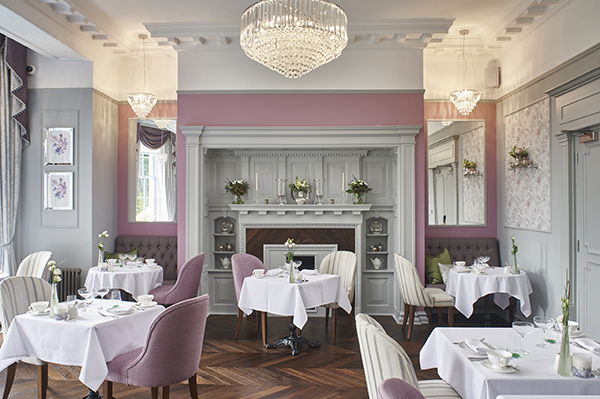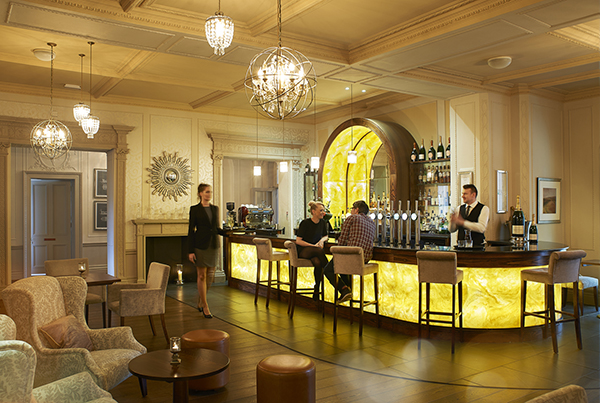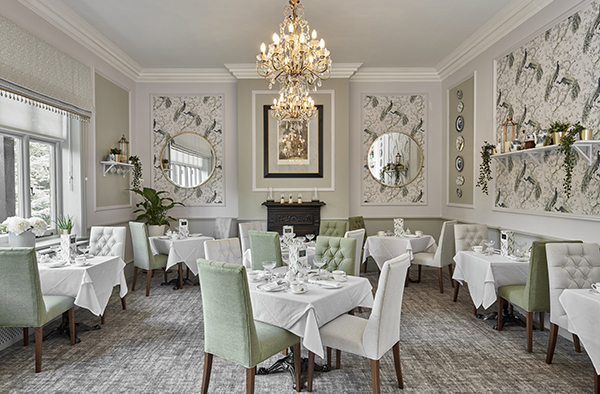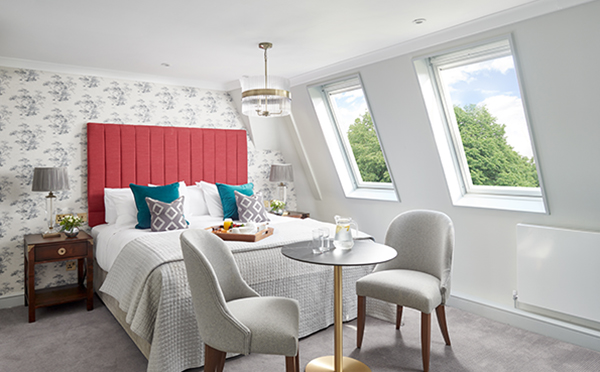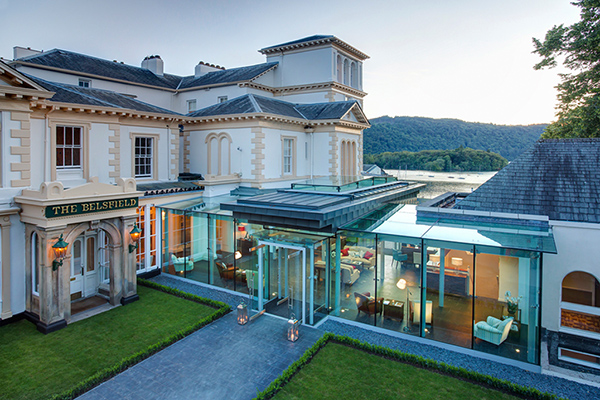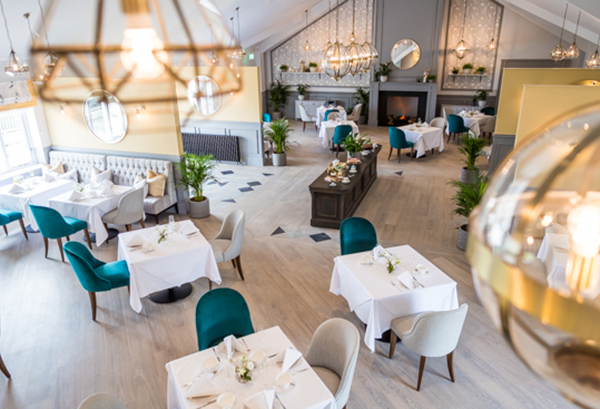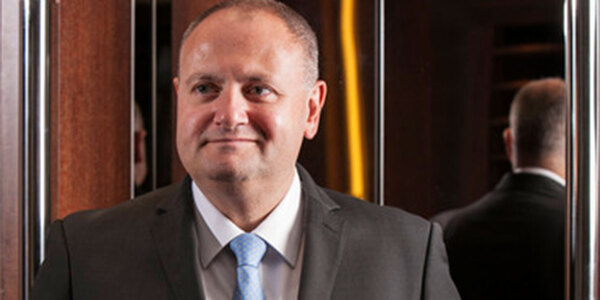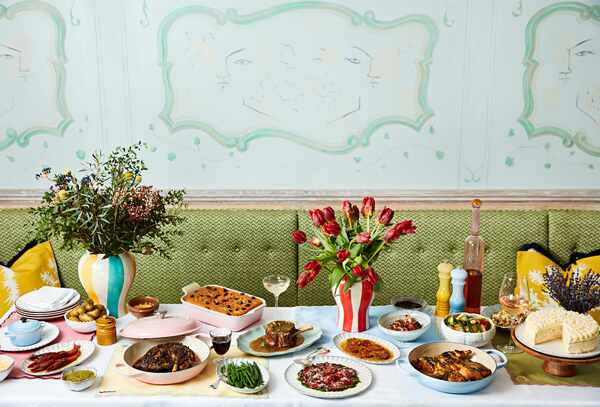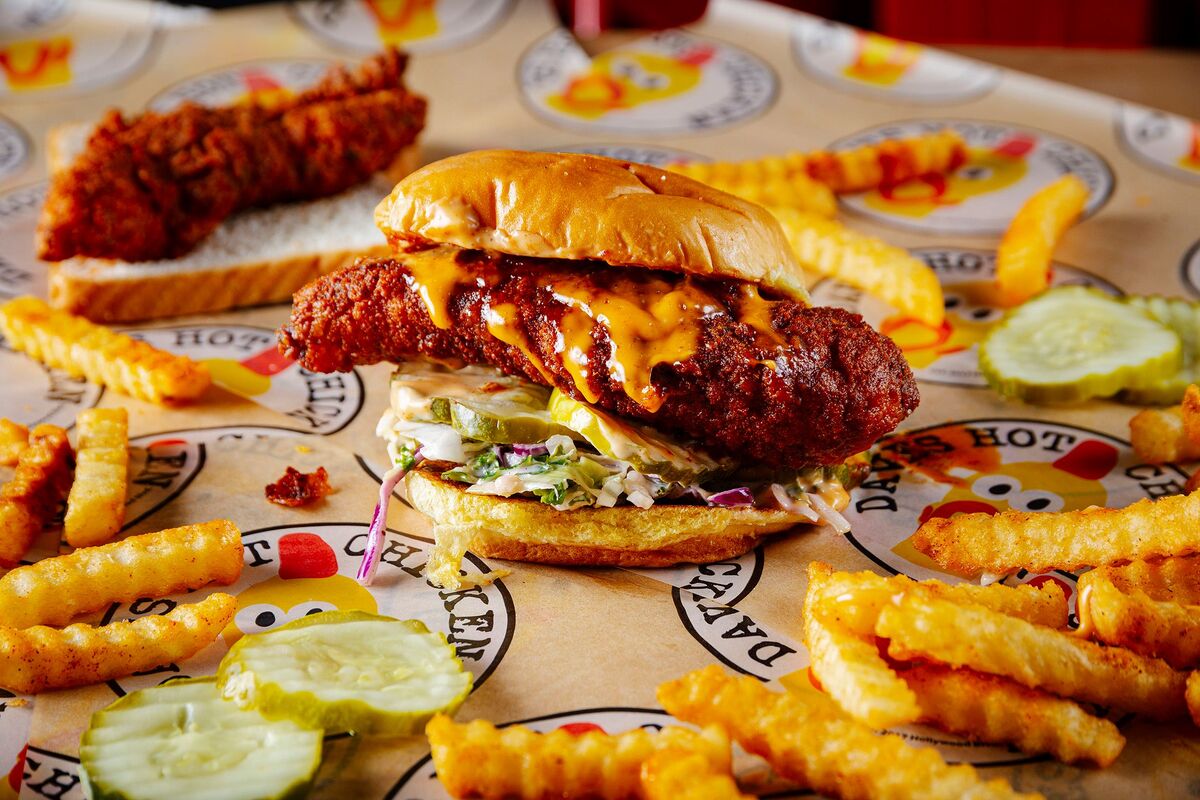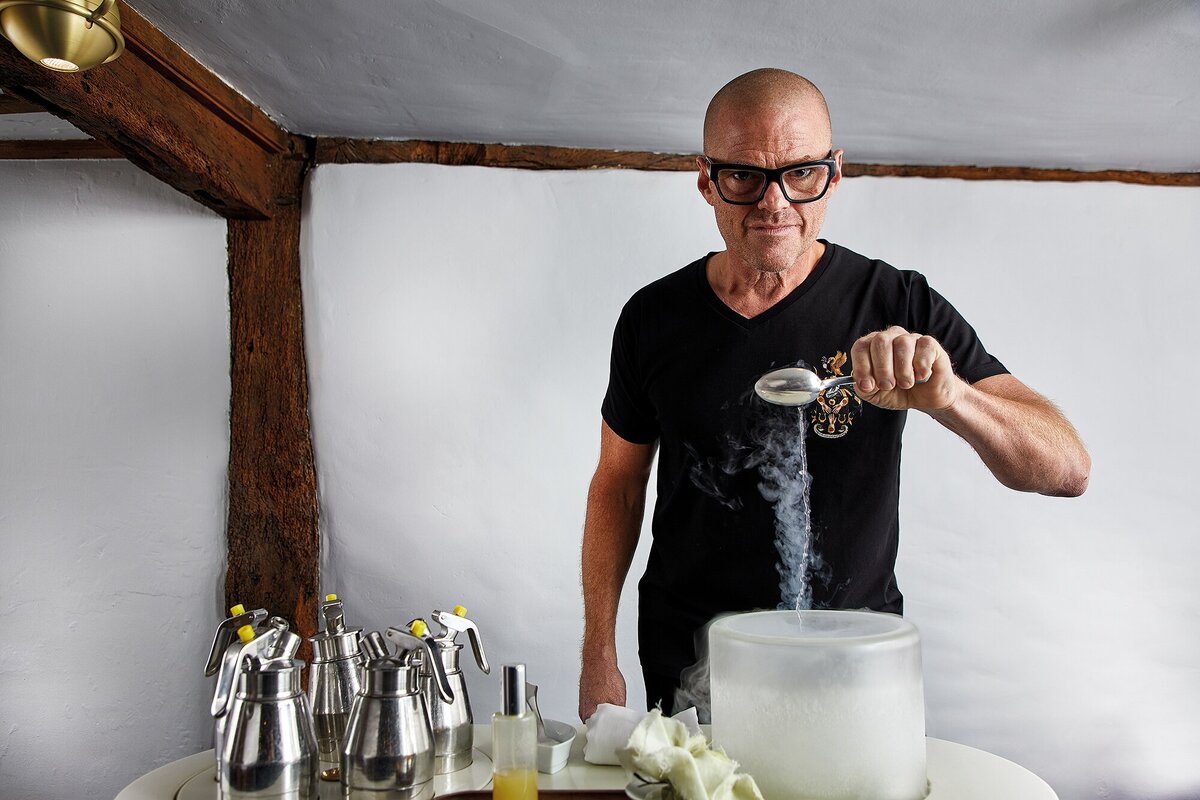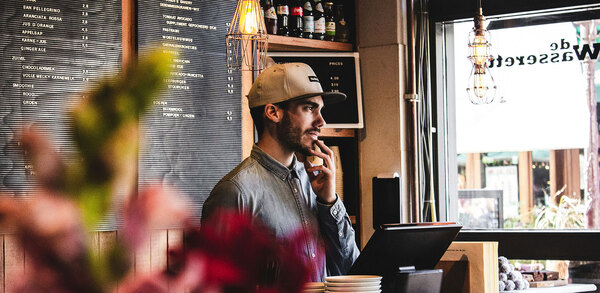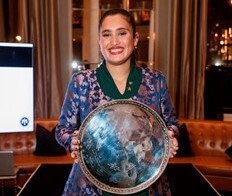Top of the shops: how Laura Ashley went from retail to rooms
Its high street presence may be shrinking, but Laura Ashley is expanding apace in the hospitality sector. Amanda Afiya checks out the fashion and homeware brand's move into hotels and tearooms
Declining sales, rising rents and, in some cases, increasing financial debt have taken their toll on many of our highest-profile retailers in recent years.
Department store House of Fraser fell into administration last summer in what many commentators described as the biggest high-street casualty since the collapse of BHS three years ago, and just last month Debenhams, whose origins date back to 1778, went into administration.
Quintessentially British brand Laura Ashley, arguably one of the world's most popular fashion and home furnishing retailers, has not escaped the economic blizzard either. It's no secret that the company, which is listed in the UK but controlled by the Malaysian group MUI, has been struggling of late. In August 2018, the company reported a dive in pre-tax profits and sales as the demand for furniture dropped, and, in December, it announced that it was to close 25% of its total UK outlets, a staggering 40 stores.
However, an unlikely phoenix from the flames is emerging in the shape of a relatively new division at Laura Ashley, which could make a positive difference to the retailer's future. Meet Laura Ashley Hospitality.
Best of British
Laura Ashley first dipped its toe into the waters of hospitality in the summer of 2013 with the launch of the 49-bedroom Laura Ashley the Manor Elstree in Hertfordshire. Described at the time as acting as a showcase for the retail brandâs products, the hotel, previously known as the Edgwarebury, was acquired from Corus Hotels (also owned by MUI) in 2012 and underwent a multimillion-pound renovation. The property was sold to Countrywide Hotels earlier this year.
Today, Laura Ashley Hotels includes the Belsfield in Windermere, the recently rebranded Chace in Coventry and the soon-to-be-included Burnham Beeches hotel near Slough. All three are Corus-owned. And in addition to the hotels division, Laura Ashley Hospitality also includes models for resorts and tearooms, of which there are now six, but a further four will have opened by the end of the summer (see panel).
According to Seán Anglim, finance director and joint chief operating officer at Laura Ashley, demand has driven the expansion of the division. âWhen we rebranded the Belsfield on Lake Windermere, everything about it just turned around, all the metrics â" sales, profitability, room rates, average room, occupancy, [and we realised that] the brand seems to be very well-suited to hospitality.â
âA little later on we opened a tearoom in Solihull in another Corus hotel, branding it Laura Ashley the Tea Room, but we couldnât cope with demand and so we thought âthereâs a message here for us â" letâs try this in other locationsâ.â
While its marketing prospectus suggests Laura Ashley Hospitality is looking to work exclusively with four- and five-star properties, Anglim is more open-minded. âWe want to work with properties that are consistent with our own brand values. We see our brand as a high-quality brand, but weâre not going to rule out anyone. Maybe if the location is good enough and we feel we can do something with it, weâll talk.â
While the first hotel launch six years ago was described as an opportunity to inject something back into retail, today Anglim argues that Laura Ashley Hospitality is an autonomous concept rather than a supplement. âRetail will always run independently, and we think this is something else that we can do well, and hopefully it will drive customers back into our shops.â
Indeed, in some outlets, such as privately owned Highbullen, thereâs a gift shop in the tearoom. âWhere there is space, we will encourage our Laura Ashley partners to have some gifts â" I think customers will expect it in large tearooms. Itâs not a necessity, but itâs nice to do â" itâs a chance for us to showcase the brand.â
Each tearoom is individually designed to fit in with its environment and, because the retailer refreshes its products twice a year, the options for designs are endless. The tearooms are operated on a licence concept, so once an agreement has been made between the two parties, Laura Ashley Hospitality hands over its standard operating procedures (SOPs), which are then adopted by the hotel. âOnce itâs licensed,â says Anglim, âwe donât manage it, because catering is not necessarily our core area of expertise. Weâve got to focus on retail first and foremost.â
In very broad terms, the tearooms are a royalty stream and the investment required for the project lies with the operator. âWhat we bring to it is our product, the designing process from our team, the SOPs and how we would expect it to be run â" we agree all that with the operator. Among the SOPs, we agree the menu, and make sure there is a local flavour to it, then we look at uniform and branding â" obviously for us itâs all about branding, so weâve created a new look for Laura Ashley Hospitality.â While the traditional retail colour is green, blue branding has been used specifically for hospitality.
OM Group International, which specialises in boutique, lifestyle and hotel brand management, was brought in by Laura Ashley Hospitality to develop and roll out the hotel, resort and tearoom programme worldwide. Its managing director, Nick Turner, who previously looked after the international portfolio for Bespoke Hotels, says his brief is to roll out Laura Ashley Hospitality in any market where the retailer is well known, which currently stands at 31 countries.
For hotels, outsourcing such a concept as the tearoom has numerous benefits, according to Turner. âHotels have forever struggled with the ability of attracting daytime trade into F&B areas. We believe we have unlocked this eternal challenge by offering hotel owners and operators the ability to drop in a Laura Ashley tearoom with minimal expense.â
Turner, who explains that from the moment an agreement is signed a tearoom can open in as little as eight weeks, says that his strategy for locating suitable sites is often led by the location of Laura Ashley retail outlets. âWe tend to look at the coverage of the UK retail stores and within 90 minutesâ drive, which often highlights a strong regional following for a new Laura Ashley dining or hotel experience. We look for ambitious and entrepreneurial hotel owners who have aligned values with our brand â" brands that shout quality, style and timelessness.â
Although the tearoom partnerships are normally set for an initial five years, the hotel or resort models seek 10 years with an automatic renew after the initial term, with mutual agreement from both Laura Ashley and the hotel owner, of course.
While Highbullen spent £500,000 on its new branded tearoom (see panel), Turner says investment in a new Laura Ashley the Tea Room can be as little as £1,000-£1,500 per cover, dependent on the size of the dining space. âBut if heavy works are required, the costs will naturally increase,â adds Turner. âWe look at a typical new Laura Ashley Tea Room generating 15,000 covers per year on a 30-40 cover outlet, but this varies on locations.
For more details on Laura Ashley Hospitality, contact nturner@omginternational.org
Fashion forwardÂ
Laura Ashley isnât the first fashion and lifestyle brand to diversify into the hotel space. Palazzo Versace Gold Coast in Queensland, Australia, claims to be the worldâs first fashion-branded hotel. Developed by the Sunland Group, the 200-bedroom hotel opened in 2000.
Bulgari entered the hotel sector in 2004 with the opening of a boutique property in Milan. Operated by Marriott, Bulgari has since opened other hotels in London, Bali, Beijing, Dubai and Shanghai, with plans for openings in Paris (2020), Moscow (2021) and Tokyo (2022).
Giorgio Armani and Emaar Properties signed an agreement in 2005 for Emaar to build and operate at least seven luxury hotels and three vacation resorts under the Italian fashion designerâs name. The first Armani hotel opened in Dubai in the worldâs tallest building, Burj Khalifa, in April 2010.
Last year, luxury watchmaker Audemars Piguet announced it was to build a 50-room hotel in western Switzerland with Bjarke Ingels Group. The hotel will be integrated into the natural surroundings, with guests being able to ski down the roof of the hotel and onto the slopes of the Vallée de Joux.
But not all relationships are made to last. In 2009, Rezidor opened Hotel Missoni in Edinburgh in partnership with the Italian fashion house. The 136-room hotel preceded a Missoni in Kuwait City, and there were plans to open in Oman, Cape Town and Salvador in Brazil. However, in 2014, the Carlson Rezidor Hotel Group terminated the worldwide Master Licence Agreement for the development and operation of the Hotel Missoni brand. The Edinburgh outpost was subsequently rebranded as the Royal Mile.
Laura Ashley Hospitality
Hotels
⢠The Belsfield, Windermere, Cumbria
â¢Â Burnham Beeches hotel, near Slough
â¢Â The Chace hotel, Coventry
The tearooms
â¢Â The Regency hotel, Solihull, West Midlands
â¢Â Burnham Beeches hotel, Buckinghamshire
â¢Â Highbullen, Umberleigh, North Devon
â¢Â The Chace Coventry, West Midlands
â¢Â Fairwater Head hotel, Axminster, Devon
â¢Â Cornwall Hotel and Spa, Tregorrick, near St Austell, Cornwall
â¢Â Kenwood Hall hotel, Sheffield, South Yorkshire (opening June)
â¢Â Cwrt Bleddyn Hotel & Spa, Usk, Monmouthshire (opening June)
â¢Â Southcrest Manor hotel, Redditch, Worcestershire (opening June)
â¢Â Laura Ashley (retail store), Stratford-upon-Avon, Warwickshire (opening this summer)
Corus on Laura Ashley Hospitality
Deciding whether a hotel should be branded as a Laura Ashley hotel is relatively straightforward, says Percy. âLaura Ashley Hotels have to be fully immersed in the brand â" decor, soft furnishings and staff culture â" before the name goes above the door. But a Laura Ashley hotel is a destination, so we take into account the grounds, the external building, local clientele, the location and the surrounding area before rebranding.â
The partnership between the two MUI-controlled companies has been successful to date, with Percy, like Sean Anglim, reporting a âdramatic upliftâ in revenue, average rate, yield and customer satisfaction at Laura Ashley Hotel the Belsfield (pictured) since the upgrade and conversion.
âWe did a comparison costing when we started the project to convert the Chace hotel in Coventry, which launches on 29 July, and the costs were very comparable. However, it is not just about the decor â" we also have
to ensure that the culture within the hotel changes and that the customer experience is enhanced.â
Corus Hotels says the partnership ensures the hotels have the correct ambience, setting and character to be a Laura Ashley hotel. âMany have a beautiful sense of history that fits with the Laura Ashley brand. The aim is to have four hotels converted by the end of 2020.â
The Tea Room at Highbullen
For David Tearle, director at Highbullen, there was an obvious synergy between the two brands. âLaura Ashley opened her first shop in 1961 and Highbullen became a hotel in 1963 â" so they are two successful businesses with a long and interesting history, and hopefully they will have a long and profitable future together.â
While the tearoom unofficially opened in October 2018, the second phase â" to operate as a supper room too â" will be introduced on 14 June. Tearle says customer response to the concept has been better than they had anticipated. âBearing in mind the time of year that we opened, the amount of repeat custom speaks volumes for the customer experience.
âThe key benefit to the licensing model, in this scenario, was the Laura Ashley brand teamed with our own, which has undoubtedly given Highbullen a unique selling point within the tearoom market,â explains Tearle. âFor other operators seeking to create a similar synergy, then tying up with an appropriate partner can be very beneficial.â
From signed contract to full opening, the project took approximately four months. Highbullenâs £500,000 covered design costs, a new ceiling and flooring, replumbing of the main room for new heating, the entrance porch (as a new structure), an extension to the kitchen, all the internal decoration and internal feature structures such as a fireplace, room divisions and staircase, all the fixtures and fittings for the room, partial refitting of the kitchen, cutlery, crockery, glassware, patio furniture, parasols, heating and all new external lighting. In addition, the budget covered printing, marketing, advertising, training and uniforms. Structural changes accounted for about 45% of the investment.
In Tearleâs view, to create the restaurant Highbullen has now â" without the Laura Ashley liaison â" would have cost more. âDesign fees and fittings would have been considerably more to achieve the same effect. When we looked closer at Laura Ashley, it was very clear that both brands brought together the essence of England: the timelessness of afternoon tea, elegant country living and one of our most iconic English brands â" itâs a perfect fit for Highbullen.â



